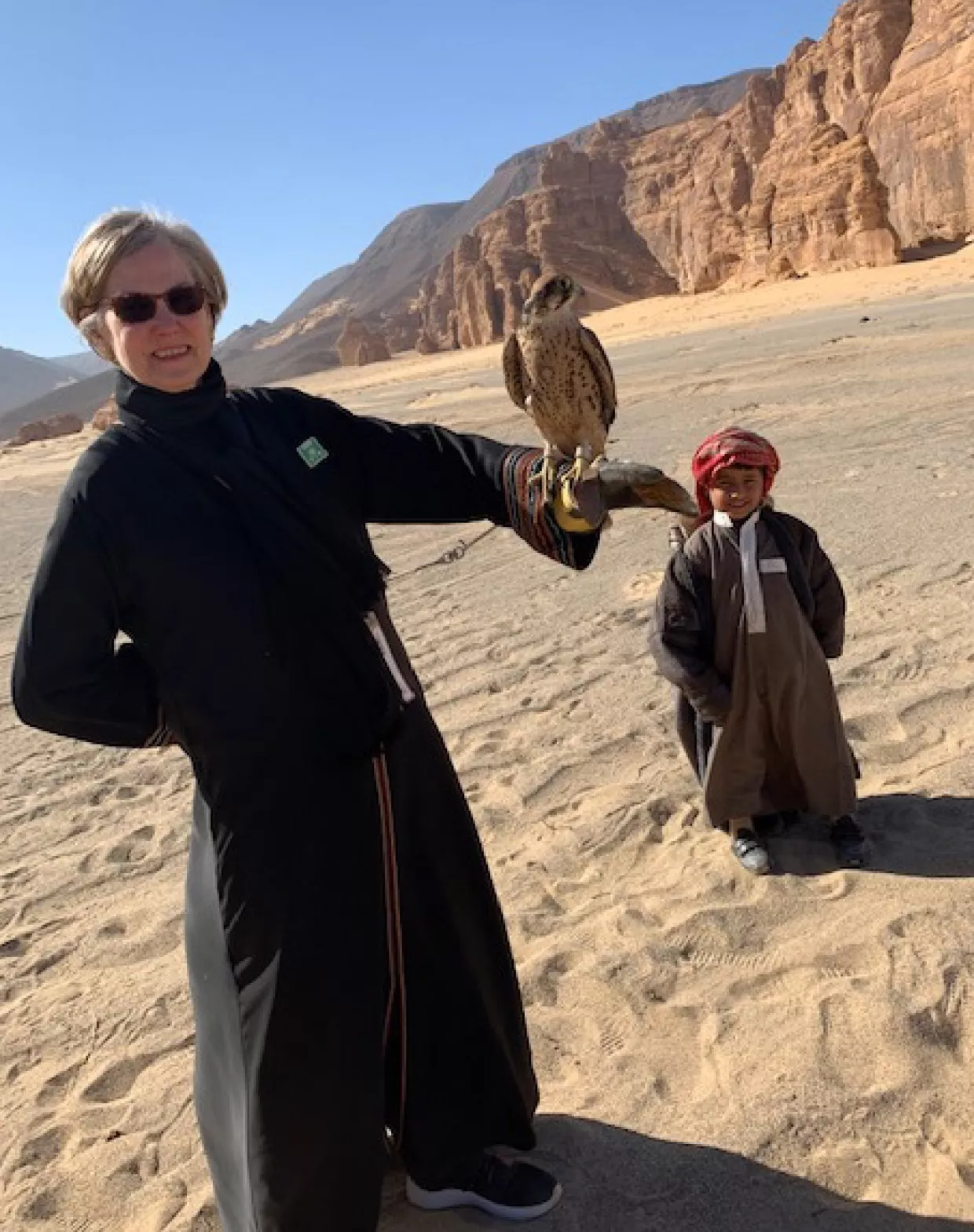
Belfer Center Senior Fellow Karen Elliott House is a longtime reporter and former publisher of The Wall Street Journal. She has covered Saudi Arabia for a number of years and written extensively on the country. Her most recent Belfer Center report is Profile of a Prince: Promise and Peril in Mohammed bin Salman’s Vision 2030.
Q: What inspired you to become a journalist?
In my small high school class (17) in Matador, Texas, I was class reporter because I could spell. Those stories appeared in the town weekly, The Matador Tribune, where I got an afterschool job doing everything from editing stories to setting type. The publisher, Douglas Meador, believed the role of a newspaper was essential to our community cohesion. He inspired me to believe that the role of a reporter is essential to communities larger than Matador because we inform and engage others in public affairs—in my case international affairs.
What lessons have you learned about how to build trust with sources and subjects?
It is simple: always be totally direct and straight, and never have any agenda beyond soliciting information from the source on behalf of readers/listeners/viewers.
How worried are you about the sustainability of independent journalism?
I worry for two reasons. First traditional newspapers are shrinking and dying, and other forms of media like cable and the Internet are much more focused on opinion than on factual news gathering. Secondly, traditional journalistic standards are eroding as reporters increasingly become part of the story, not dispassionate observers of what they see and hear. The Wall Street Journal happily remains a publication that clearly separates news and opinion both in print and online.
What are the most striking changes you have witnessed in Saudi Arabia since your first visit?
I have visited Saudi for more than 40 years as a journalist and more recently an author. Over those years there have been periods of deep conservatism and now relative liberalization. But the single most striking change has been the role of women who today are increasingly free—and encouraged by government—to pursue careers (not just as teachers of girls) drive cars, attend sporting events and concerts, mix publicly with unrelated men, and generally lead far freer lives than at any time in the past 40 years. Yes, there are still restrictions on Saudi women but fewer than in the past, and as the social norm changes ever more, Saudis will feel comfortable adopting the new freedoms.
What do you wish more Westerners understood about Saudi?
I want them to understand Saudis are not a caricature. We Texans often are stereotyped as cowboys and drawling hicks. Similarly, Saudi men are stereotyped as oppressors or worse yet, terrorists, and women as victims. Obviously Saudi, like Texas, defies stereotypes.
What is your favorite hobby?
My favorite hobby is history and my favorite pastime is reading books, particularly on Islam and on Arab history.
What do you value most about your affiliation with the Belfer Center?
Here in the United States, it is the opportunity to interact with its serious scholars and practitioners. Abroad, I am grateful for the prestige that the Belfer Center and Harvard convey to Saudis and others around the world with whom I interact.
"Q&A with Karen Elliott House." Belfer Center Newsletter. Belfer Center for Science and International Affairs, Harvard Kennedy School (Summer 2019).
